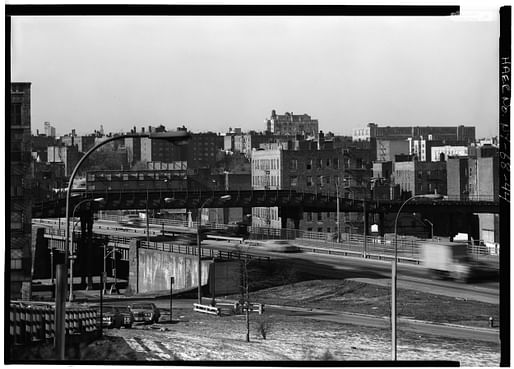

Block a highway, and you upend the economic life of a city, as well as the spatial logic that has long allowed people to pass through them without encountering their poverty or problems. Block a highway, and you command a lot more attention than would a rally outside a church or city hall — from traffic helicopters, immobile commuters, alarmed officials. — the Washington Post
The article notes that, historically, highway construction decimated black communities, such as in St. Paul, Minneapolis, Baltimore, Oakland, and many other cities. In New York, Robert Moses explicitly used highways to clear "slums," in the process devastating parts of the Bronx and other black neighborhoods.
Highways were also used as weapons in the arsenal of segregation. For example in Chicago, Mayor Richard Daley separated traditionally white Irish neighborhoods from black communities in the South Side with the Dan Ryan Expressway.
Today, highways carry additional symbolic weight for Black Lives Matter protestors. Many of the black men killed by police over the past few years – Philando Castile, for example – were stopped in routine traffic checks.
Infrastructure also has symbolic resonance in the larger history of the civil rights movement. The article mentions as examples the Selma March, the Freedom Rides, and Rosa Park's refusal to sit at the back of a public bus.
For more on the relationship between civil rights and the built environment, check out these links:
1 Comment
I find this to be particularly interesting in light of how protests are taking to the highways, especially in MSP.
The place where black homes and business - thriving communities of color - once stood, is being reclaimed by BLM and allies.
Seems fitting.
Block this user
Are you sure you want to block this user and hide all related comments throughout the site?
Archinect
This is your first comment on Archinect. Your comment will be visible once approved.